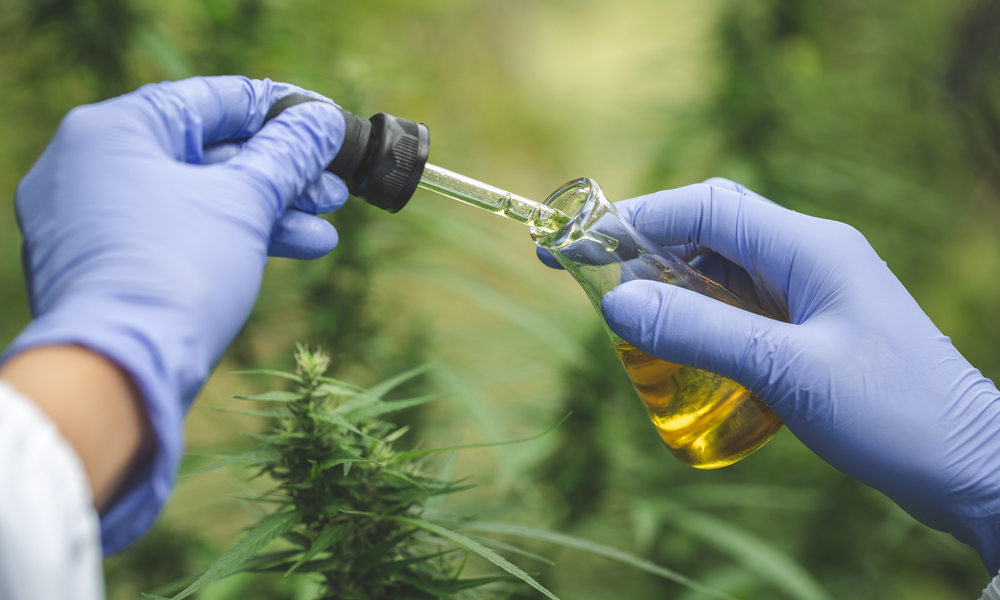You are here
Home 🌿 Cannabis Technology News 🌿 Explainer: What’s the difference between CBD oil and hemp oil? 🌿Explainer: What’s the difference between CBD oil and hemp oil?

CBD has grown in popularity over the past few years, becoming the go-to product of choice for soccer moms, Silicon Valley professionals, millennials, and just about anyone interested in natural, organic remedies. Some reports even claim that it’s found a new audience during the recent coronavirus epidemic, as a stressed-out, anxiety-ridden populace looks for ways to calm their nerves and lower their anxiety while staying home.
The growth of the CBD industry has been enormous, fueling the overall cannabis sector to a 46 percent spike in profits year-over-year from 2018 to 2019. According to recent reports, that’s an increase of $14.7 billion, proving that cannabis and CBD have some staying power.
But as more and more people begin to explore the possibilities of cannabidiol, there’s been a bit of confusion on the marketplace — a fact that has not been made any easier by fly-by-night companies looking to make a quick buck. The infusion of so many products, from CBD oil to CBD edibles to CBD for pets, makes for a confusing array of choices.
At the top of the list for many people lies the similarities and differences between CBD oil and hemp oil. While both terms are often used interchangeably, and both products share many similar properties, they are, in fact, different. In this week’s Explainer, we checked in with the team at AskCBD! to see if we can’t decipher the difference.
Hemp oil and CBD oil both come from Cannabis Sativa
According to the folks at AskCBD!, both CBD oil and hemp oil come from Cannabis Sativa, although they write that “hemp oil comes from a strain with a meager cannabinoid count.” As the writers there note: “...hemp oil comes from the seeds of the hemp plant, identical to how olive oil or almond oil is produced. It is low in THC, meaning it has no psychotropic effects, which, in this case, does make it similar to CBD.”
Like CBD, hemp oil has a 0.3 percent or lower THC concentration; however, it is also low in CBD itself, according to AskCBD!, containing roughly 3.5 percent or less.
The two oils are produced differently, with hemp oil coming from pressed seeds, much like olive or coconut oil. Meanwhile, CBD oil can be made in several different ways; the most prominent of which is through the process of solvent extraction. According to AskCBD!, “a solvent, like butane or alcohol, is pushed through the Cannabis Sativa plant, separating out the cannabinoids.”
How can you benefit from hemp oil and CBD oil?
The benefits of both hemp oil and CBD oil are numerous but do vary considerably. To date, although CBD has been studied the world over, it has only been approved to treat two rare forms of epilepsy by the FDA in America — for a drug called Epidiolex developed by GW Pharmaceuticals. However, a number of clinical trials have been done to examine CBD’s usefulness for a variety of conditions with mixed results. On top of that, there is a vast trove of anecdotal evidence that shows people use CBD oil for help with relaxation, anxiety, sleep, and more. While nothing has received approval from the FDA to-date, researchers continue to study CBD and explore its possibilities.
Hemp oil is a much different extract. According to AskCBD!, it’s perfect for use in cooking and is high in nutritional value. “Great for cooking, hemp oil is low in saturated fats and is full of many healthy nutrients known to keep the body active and healthy,” wrote AskCBD! “It is also an excellent product for the skin.” Hemp oil is full of nutrients like magnesium, potassium, vitamin B1, vitamin B2, omega-3 and omega-6 polyunsaturated fats, and vitamin E.
So, in the end…
Hemp oil and CBD oil are two very different extracts that have their own benefits. As AskCBD! said, “a simple way to think about it is that CBD oil is what people use to hopefully feel better, while hemp oil is used to stay fit.” More importantly, while the two terms can be used interchangeably, they mean very different things.
420 Intel is Your Source for Marijuana News
420 Intel Canada is your leading news source for the Canadian cannabis industry. Get the latest updates on Canadian cannabis stocks and developments on how Canada continues to be a major player in the worldwide recreational and medical cannabis industry.
420 Intel Canada is the Canadian Industry news outlet that will keep you updated on how these Canadian developments in recreational and medical marijuana will impact the country and the world. Our commitment is to bring you the most important cannabis news stories from across Canada every day of the week.
Marijuana industry news is a constant endeavor with new developments each day. For marijuana news across the True North, 420 Intel Canada promises to bring you quality, Canadian, cannabis industry news.
You can get 420 Intel news delivered directly to your inbox by signing up for our daily marijuana news, ensuring you’re always kept up to date on the ever-changing cannabis industry. To stay even better informed about marijuana legalization news follow us on Twitter, Facebook and LinkedIn.




